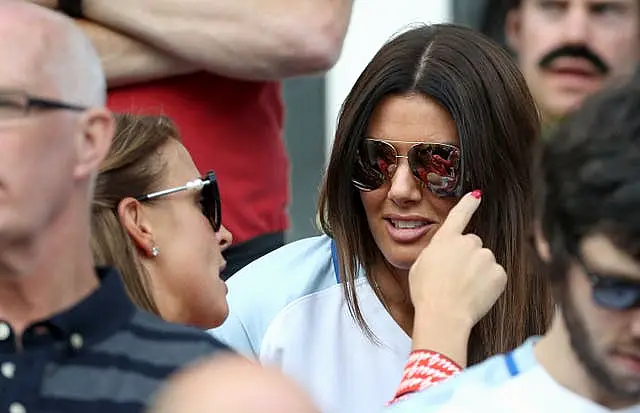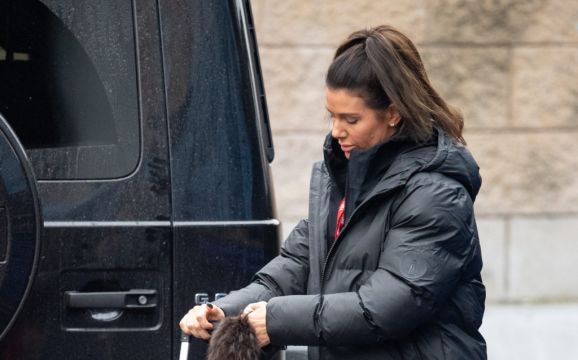Rebekah Vardy’s agent is not fit to give oral evidence in the footballer’s wife’s upcoming libel trial against Coleen Rooney, the High Court in London has been told.
Mrs Rooney accused Mrs Vardy of leaking “false stories” about her private life to the media in October 2019 after carrying out a months-long “sting operation”.
The wife of former England star Wayne Rooney was dubbed “Wagatha Christie” when she publicly claimed her fellow footballer’s wife shared fake stories she had posted on her personal Instagram account with The Sun newspaper.
Mrs Vardy, who is married to Leicester City striker Jamie Vardy, denies the accusations and is suing Mrs Rooney for libel.
Mrs Rooney’s lawyers previously claimed that Mrs Vardy had leaked information to The Sun either directly or through her friend and agent Caroline Watt “acting on her instruction or with her knowing approval”.
Ms Watt was referred to at an earlier hearing after the High Court in London heard that WhatsApp messages between Mrs Vardy and Ms Watt had been disclosed.
Texts heard in court included Mrs Vardy referring to someone, whose identity is disputed, as a “nasty bitch”.

David Sherborne, for Mrs Rooney, previously argued Ms Watt texted Mrs Vardy “it wasn’t someone she trusted. It was me”, when the pair were discussing a complaint by Mrs Rooney about leaked stories.
Mr Sherborne also previously told the court that Ms Watt’s phone had “regrettably” fallen into the North Sea before further information could be extracted from it for the case.
At a hearing on Wednesday ahead of the full trial expected next month, Hugh Tomlinson QC, for Mrs Vardy, said that Ms Watt could not give oral evidence.
In written arguments, Mr Tomlinson said: “The claimant served a witness statement of Caroline Watt with the intention of calling Ms Watt to give oral evidence at the trial.
“The claimant’s solicitors were, however, aware that Ms Watt was in a fragile state and had been expressing serious concerns about giving evidence.”
He added that a consultant forensic psychiatrist produced a report which concluded Ms Watt is not fit to provide oral evidence at the High Court trial.
“In these circumstances, it is clear that Ms Watt cannot be called to give evidence,” he concluded.
Mr Sherborne argued Ms Watt is a “key witness” for the trial with “critical” evidence.
In written arguments, Mr Sherborne said: “The defendant has serious concerns about the lack of any opportunity to cross-examine Ms Watt on her statement given the real concerns about its truthfulness and reliability and the central importance of her role in the allegations complained of.”
He added: “Ms Watt is now saying that she is too ill to attend court to be cross-examined on the events and allegations concerning her, although she was and is able to provide a lengthy witness statement about them, provided she is not questioned about it.
“The defendant’s position is that Ms Watt’s concern about giving evidence is because of the realisation that her evidence is untrue and therefore she is scared of being tested upon it.”
Mrs Rooney had previously asked for permission to bring an “additional claim” against Ms Watt for misuse of private information and wanted it to be heard alongside the libel case.
However in a judgment in February, Mrs Justice Steyn rejected her bid, finding it was brought too late and that previous opportunities to make the claim had not been taken.
Wednesday’s hearing is also expected to cover issues of expert evidence and what information should be given to the court by journalists at The Sun.
The hearing before Mrs Justice Steyn continues.







